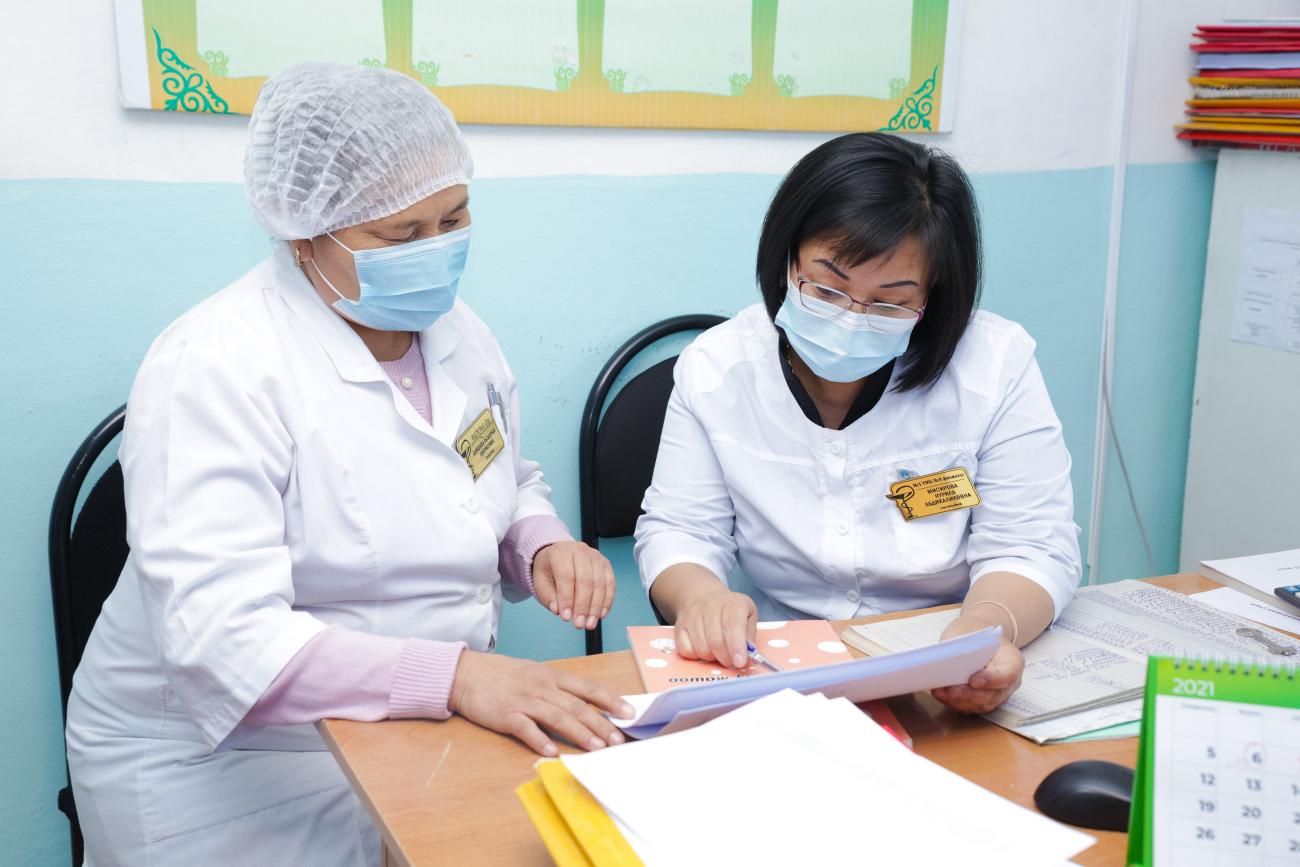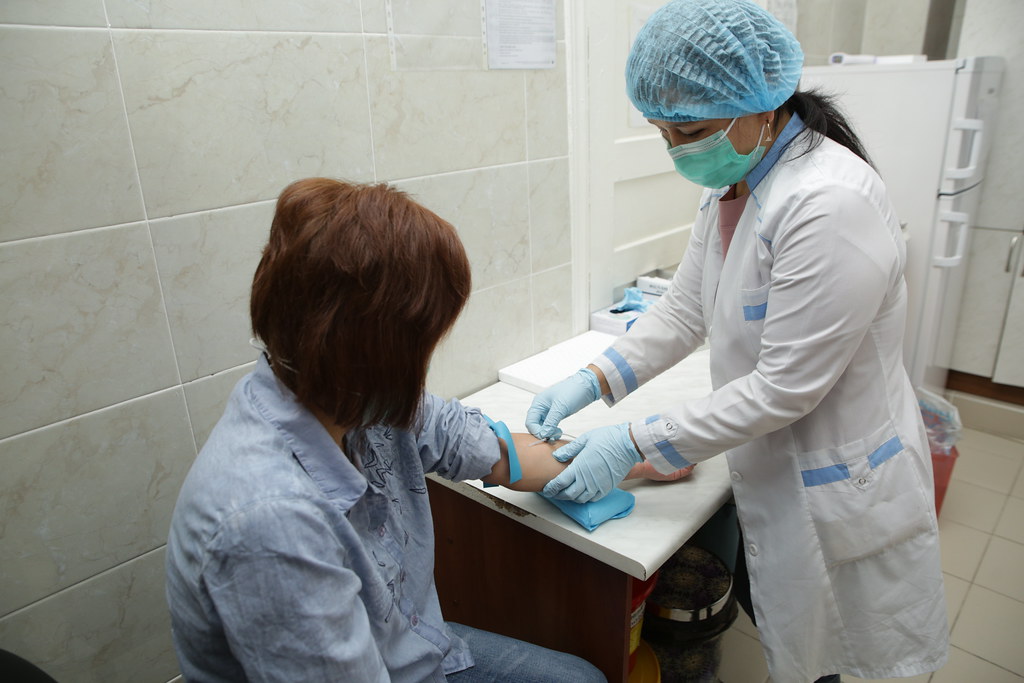To hold a focus on HIV problem in Kyrgyzstan

Thanks to the successful coordination work of the Republican AIDS Center with partners they were able to keep the focus on the HIV problem and moved forward.
The COVID-19 pandemic has still been influencing all spheres of our life. People's ordinary life has changed, and all our lifestyle has changed too.
We are used to that fact that all medical institutions are focused on fighting against COVID-19, and all infections and diseases have moved to outcompete. It could have happened with HIV infection in Kyrgyzstan, but thanks to the successful coordination work of the Republican AIDS Center with civic society organizations and international partners they were able to keep the focus on the HIV problem and moved forward.
Aibek Bekbolotov, Deputy Director of the Republican AIDS Center:
“Our main tasks during the first year of COVID-19 pandemic were to prevent break of HIV treatment and maintain patients’ adherence to ARV therapy. Thanks to all our partners’ support, we were able to develop the special roadmap and provide ARV therapy to all our patients and all people who wanted to get HIV tests had that opportunity to do it during all pandemic period. Today, ARV therapy adherence is 87% as pre-pandemic time. We keep carrying outdoor testing campaigns, providing all our activities on social media, and have launched online consultations on the new website."
Regional Cooperation Program on infectious diseases implemented by UNAIDS country office and funded by the Government of the Russian Federation managed to build quick response challenges of the COVID-19 pandemic and made contribute to support the National AIDS Center. Access to HIV testing and counseling for key population groups was significantly expanded in the 2020-2021 years.
According to the Department of External Migration of the Ministry of Foreign Affairs of the Kyrgyz Republic, more than 750 thousand Kyrgyz citizens have been abroad. The Russian Federation is still the main host country. During the lockdown period and the massive process of coming back home labor migrants to the country, the National AIDS Center conducted special formative research among migrants.
“Our colleagues from the National AIDS Center interviewed about 240 migrants who came back to Kyrgyzstan during the lockdown period in 2020. For us, as specialists who work in the HIV sphere, the research has given general understanding of how people behave in labor migration. Do they have sexual intercourse with the key population groups? Do they know where to get HIV test? We obtained the data that formed the basis for sentinel HIV surveillance, which is carried out once every several years and allows us to assess the epidemiological situation among key population” explains Meerim Sarybaeva, UNAIDS Country Director in Kyrgyzstan.
According UNAIDS data in 2020, around 1.5 million people were newly infected with HIV. The Global Fund to Fight AIDS, Tuberculosis and Malaria reported that, according to data collected at 502 health facilities in 32 African and Asian countries, HIV testing declined by 41% and referrals for diagnosis and treatment declined by 37% during the first COVID-19 lockdowns in 2020, compared with the same period in 2019.
The implementation of new HIV approaches of epidemiological surveillance, the development of new methods of HIV prevention among key population groups, and the constant increase of the capacity of the medical staff of the National AIDS Centre, family medicine centers with the support of the Regional Cooperation Program on infectious diseases funded by the Government of the Russian Federation allows the country to prevent back-off in the progress of HIV sphere over the past 30 years, and to achieve the new Global targets of 95-95-95 in the next few years.




